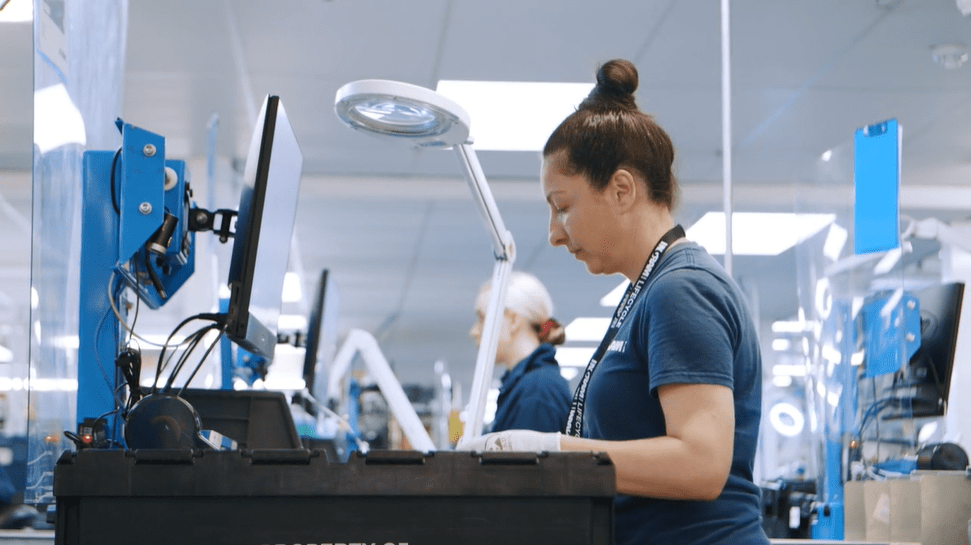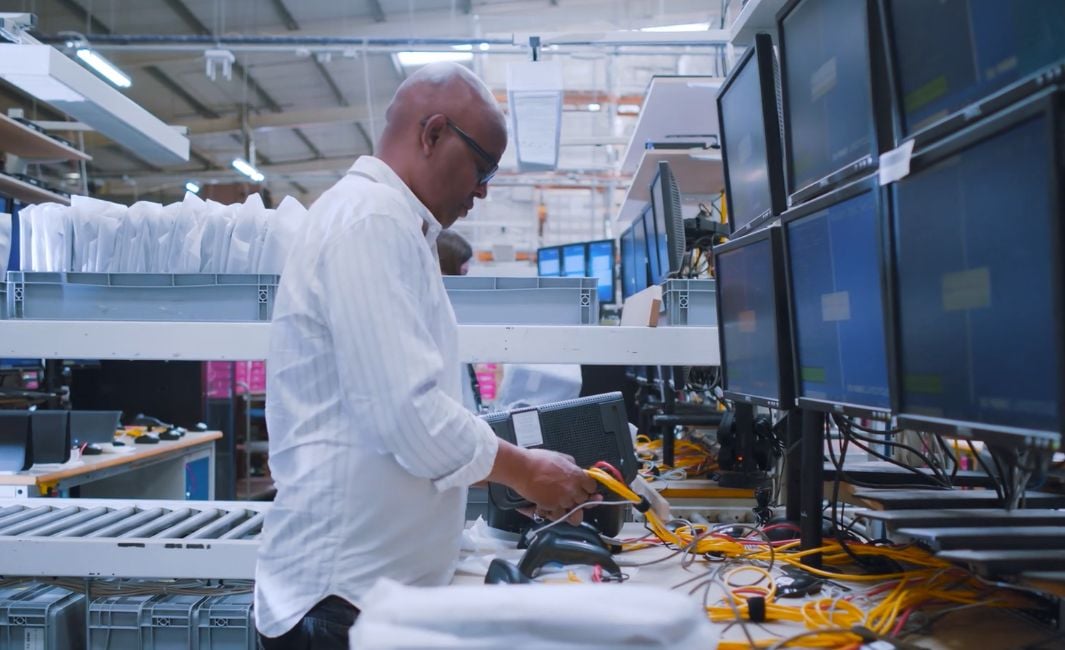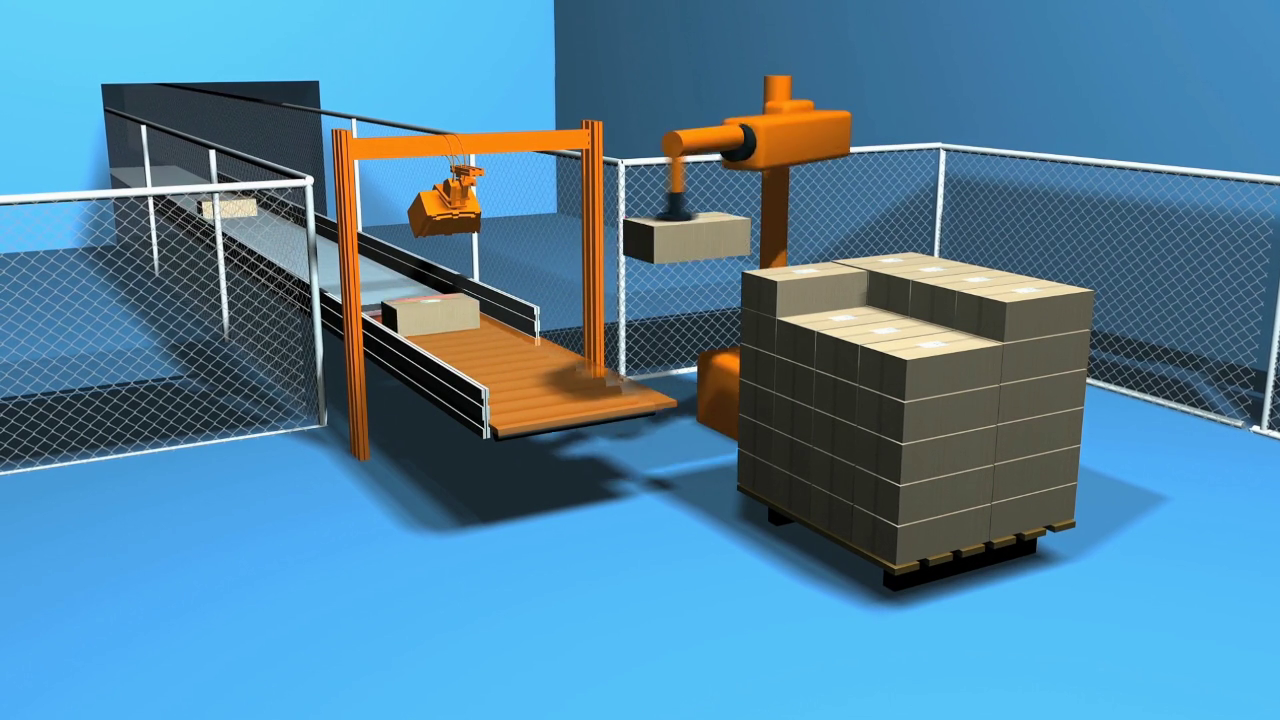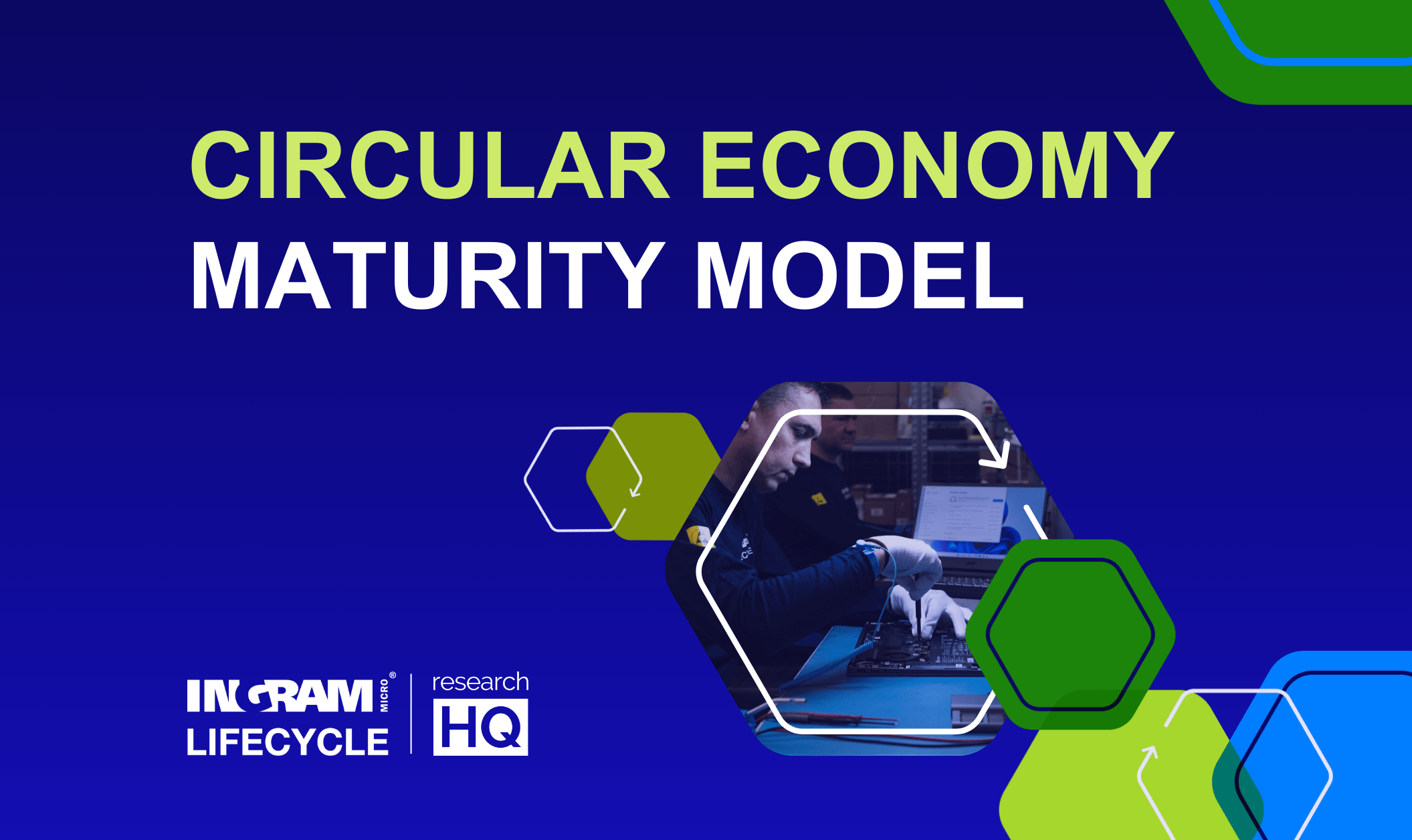Are you struggling with capacity or management of product returns? If you don’t have the resources or infrastructure within your reverse supply chain to process returns promptly, you can face depreciating products left on your balance books.
Being unable to process returns quickly can also impact customer service and experience, especially if the outcome of the return triggers a refund or replacement product.
Ingram Micro Lifecycle has been operating as a third-party logistics provider for over 30 years, supporting customers around the globe. We specialize in electronics and gadgets, including small domestic appliances, gaming consoles, laptops, smartphones, and more. The services and solutions we provide ensure that the lifecycle of electronic devices can be maximized, recovering value where possible, and limiting waste.
In this piece, we cover our top recommendations for ensuring that you receive the maximum benefits of your relationship with a returns management partner.
The benefits of using a returns management partner
Establishing processes and maintaining the infrastructure within your company to support product returns adds pressure. This is particularly the case if you experience seasonal sales, such as at Christmas time or around Black Friday. You need to have the agility to upscale returns support without hemorrhaging costs during other times of the year.
The solution may be to outsource this. These are some of the reasons why moving your returns management to an off-site partner can be best.
1. Enables a circular economy
Your returned products will be screened and graded with the possible outcome of heading to the secondary market. Not only can these be used as replacement products, but you can resell them too. This ensures the products are getting reused where possible, rather than becoming waste.
The carbon emissions avoidance data from this and waste reduction can feed into your company’s ESG objectives.
Find out more about how a reverse logistics partner enables a circular economy.
2. Access to approved parts
Partners with OEM (Original Equipment Manufacturer) accreditations will have access to manufacturer-approved parts, processes, manuals, etc so you can be assured that repair and refurbishment is conducted to the highest standard.
They’ll be regularly audited as part of the accreditation process so your partner stays up-to-date with the latest models and manufacturer guidelines.
3. Compliant data handling
Check that your reverse logistics partner holds relevant certifications for the safe and compliant handling of data. This will ensure that appropriate software and processes are used to eradicate residual data on devices.
OEM accreditations will enable access to manufacturer-approved software for data-wiping purposes.
The partner will also hold liability insurance to protect against any data losses or breaches. It is, however, your responsibility to be sure that the cover they have is adequate for the protection you need.
4. Inventory management
Product returns will be stored off-premises. Your partner will have the warehousing space available to accommodate these. It saves you sourcing extra storage, particularly when you need to be agile around peak seasons.
Stock will be inventoried on an easily accessible system, giving you full transparency of the products available and their status. You’ll be able to call-off stock as and when needed, and access tracking information.
5. Innovations through robotics and automation
A great reverse logistics partner will work to stay competitive, utilizing leading-edge advances in technology to constantly strive for better processes.
This includes adopting AI-backed automation and robotics within processes to improve cost efficiencies and time savings.
6. Trusted know-how
You’ll benefit from a team of expert engineers and technicians, all ready to understand the ins and outs of your products. Their years of working with logistics and product returns ensure they’ve got the best processes that have been refined over time.
They know what works best in the industry, and will understand your pain points and pressures to ease them. Through a collaborative relationship, they’ll listen to your feedback to tailor their solutions to suit your needs.
They’ll be able to turn around returns quickly to minimize the depreciation of assets and recover value where possible.
7. Technical customer support
If the returns management partner is able to offer technical call center support, then this removes another responsibility of yours.
Once they have received the product, they’re able to liaise directly with the end user to provide necessary updates and additional support.
8. Returns avoidance
Any results of product strip downs and root cause analysis can be fed to call handlers and customer service advisors to respond to end users on common issues, instructions, and fault finding, to encourage returns avoidance.
9. Global footprint
Your returns partner should have the scale to support your global locations. Wherever your customers are returning products, there needs to be a local returns center.
This saves hassle for your customers and means you don’t have to upscale unless your core business functions necessitate it.
Getting the most from your returns management partner
Outsourcing to any third party can be challenging as you want to make sure you select the right partner. Failing to do your research can lead to an unsuccessful partner which could damage your brand reputation and be costly.
Following the advice below will set you on the right path to getting the best value from the relationship with your returns management partner.
1. Collaborate effectively
Make sure channels of communication flow between you and the partner. Ensuring seamless communication will pave the way for effective and efficient workflows.
Encourage the exchange of ideas and growth. You and the partner should be flexible in adapting processes when the situation calls for it.
2. Focus on end-user experience
The satisfaction of your customer should be key and the partner should drive to put that at the forefront of the returns process.
Without your customer, there’s no future product sales and it’s cost-effective to retain customers rather than find new ones.
3. Optimize value recovery
While end-user experience is vital, you also need your returns management partner to recover as much value as possible from returned goods. They need efficient screening processes to ascertain what repairs and refurbishments are needed to restore value.
The partner should have access to a wide range of secondary market channels for the resale of returns.
4. User-friendly front-end systems
Whether providing an end-user-facing tracking portal or creating a gateway for you to track your inventory, the digital systems need to run smoothly, require simple inputs, and be easily accessible. The partner should optimize for transparency and visibility.
5. Simplify
Make sure processes, systems, and inputs required are easy, especially when it comes to end customer experience. Always look for areas that can be refined and simplified. Cut out unnecessary steps.
6. Improve performance metrics
Continue seeking improvements based on internal and external feedback, including that of your end users. Reach out for customer opinions on areas that could be better with a view of boosting your Net Promoter Score.
7. Shoot for the stars
If you know that saying then you’ll know that even if you aim for the best, your chances of delivering something great are increased than if you set out for ‘okay’.
The chances of your delivery being perfect the first time are slim, and is anything ever perfect? But if your products are spot-on, instructions and descriptions are clear, and customer experience is high, you’re at least minimizing the chances of returns in the first place.
Optimizing your returns
Following the tips above when it comes to the relationship between you and your returns management partner ensures that you and your customers have access to the best service provision and don’t need to attribute internal resources.
Speed and agility are key characteristics you should look for when handling returns as these will ensure maximum value recovery, innovation, and high satisfaction for all in the chain.
Ingram Micro Lifecycle process returns in a fast, efficient manner to ensure electronics are graded and tested, ready to either reuse or resell, ensuring the least amount of depreciation for our clients.
We support manufacturers, operators/carriers, and retailers around the world to process their product returns.
Further reading:













